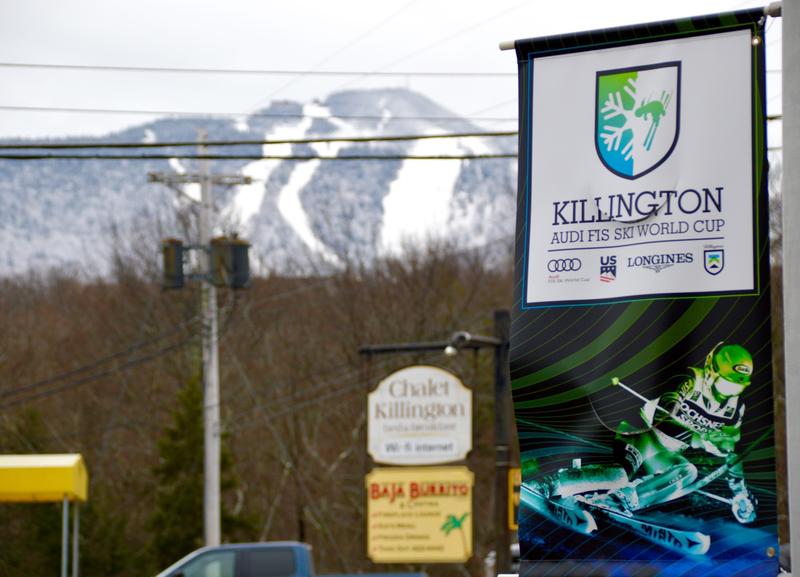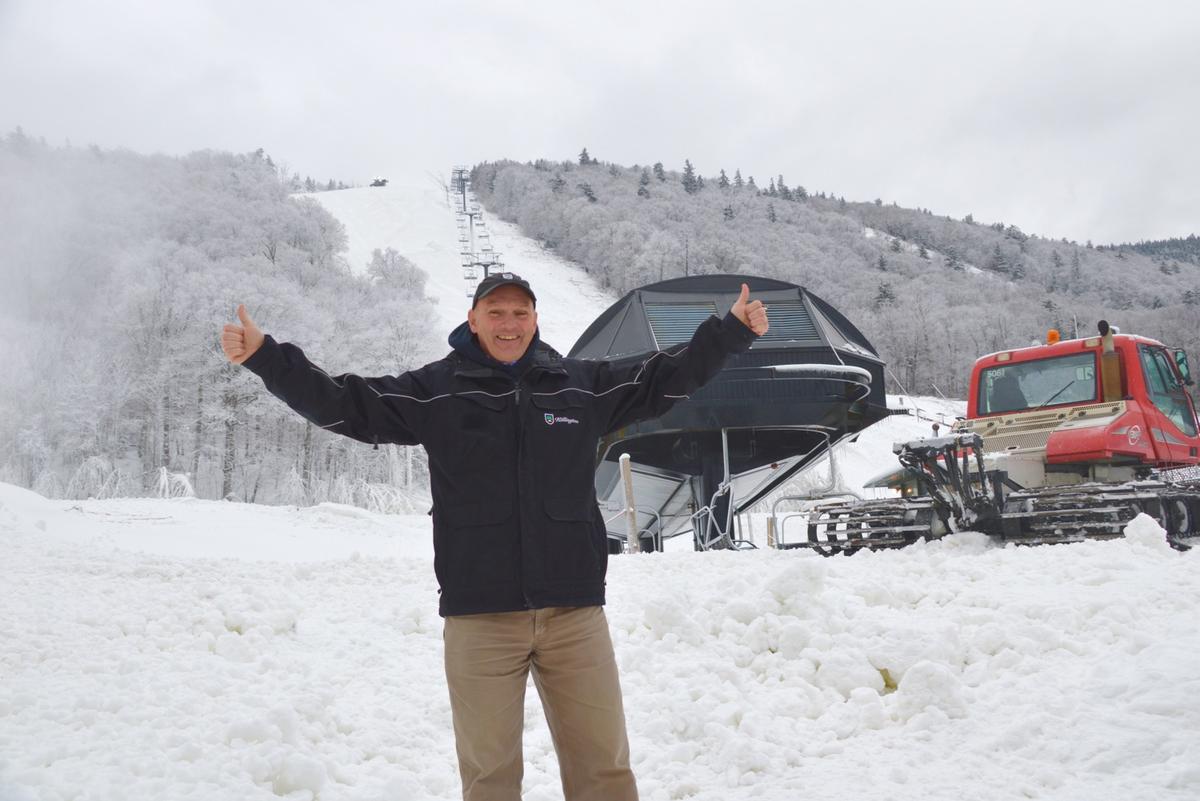
Roy
Webster of Roy’s Taxi in Rutland drove his little girl, Raegan up to
Killington to make snow angels during an unexpected snowstorm. His wife,
Amanda, took some photos. VYTO STARINSKAS / STAFF FILE PHOTO
Finneron ran against Jay Hickory and won 87-48 in the Dec. 5 townwide election, with 135 ballots cast.
Following the resignation of Kenneth Lee as of Oct. 1, Finneron had been appointed to fill the remainder of Lee’s term.
The evening’s presentations by department heads in support of their budget proposals were the second of three sessions, with the “consolidated” budget to be presented for final changes by the Select Board Tuesday, Dec. 19, prior to being placed on the Town Meeting warning.
Informal comments by department heads provided insight into the fiscal realities of the town.
Town Clerk and Treasurer Lucrecia Wonsor described the ongoing project to preserve and bind the town’s documents, grand lists and land records in archival hard copy as well as electronically.
Unlike many other states, town clerks in Vermont are the custodians of the complete set of original records from the town’s earliest years to the present. Wonsor said she uses a cloud-based index for land records that go back to 1980, which can be accessed by the public at no charge.
The new Town Clerks Portal is hosted and managed by Cott Systems, of Ohio, specifically for digitizing land records and historical documents. Images are not available online — a visit to the town office is still needed to view the documents. The portal is reasonably priced and customizable, she said.
Wonsor would like to add a new part-time, yearround assistant treasurer position to share the increasing workload in the town office.
While she welcomes payment of taxes and fees by credit card, this practice is increasing and “it creates another step” for the treasurer. In addition, she said a third person would provide “ checks and balances,” that the person who writes checks should not be the same person making deposits.
In general, the town office is “very busy,” she said. Second-home owners “are used to a certain level of service,” she added.
New state requirements are adding to the cost of operating the town. Lister Walter Findeisen referred to the new requirement to use the statewide property parcel mapping program, adding a first year cost of $3,900, with $2,400 annually thereafter.
Chet Hagenbarth, reporting on solid waste management, said transfer stations will gradually become more expensive to operate, and food waste “will be super expensive,” he said. He noted that while “there is no market for recyclables,” which used to be an income generator and revenues from the transfer station are flat, changes proposed to Act 48, the Universal Recycling Law, will allow the towns to begin charging a fee for mandated items.
Select Board chairwoman Patty McGrath asked whether such a fee would deter people from recycling. Hagenbarth said it would definitely discourage businesses or organizations from recycling largevolume materials such as cartons.
The Nov. 21, Select Board meeting heard budget presentations by the Green Mountain National Golf Course, the Killington Police Department, the library, Planning and Zoning, and the listers.
Golf course manager David Soucy reported that his objective is to keep the budget “flat” for the coming year, while increasing memberships and tournaments. Soucy, a Vermont state senator, said he has reduced his own salary by $11,000.
Police Chief Whit Montgomery will continue to “aggressively” seek grants for funding equipment and training and now charges for special police coverage such as at private events that require road closings.
Montgomery said the policing cost per resident in Killington is approximately $172 per year, or about 75 percent of the national average.
Sherburne Memorial librarian Jane Ramos listed the transition to VTel for high-speed internet and fee increases as boosting the budget by 1.3 percent.
Planner Richard Horner said he anticipated a basically unchanged budget, with a 2 percent cost-of-living adjustment increase balanced by extra revenue from Bear Mountain permits.







